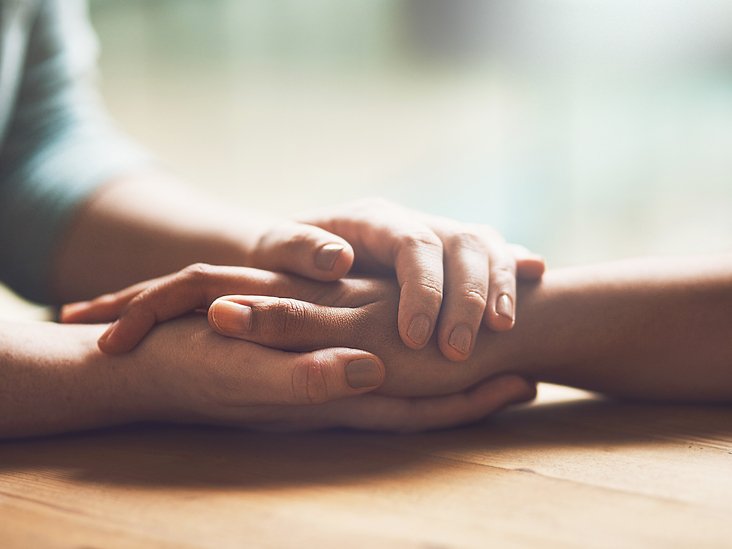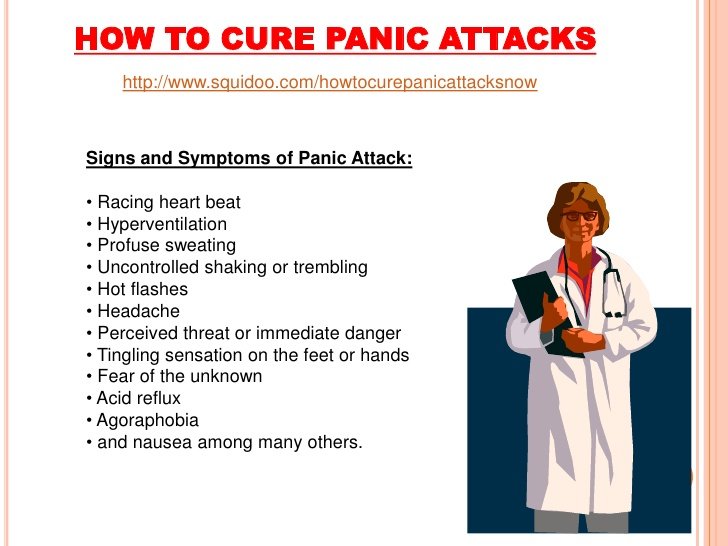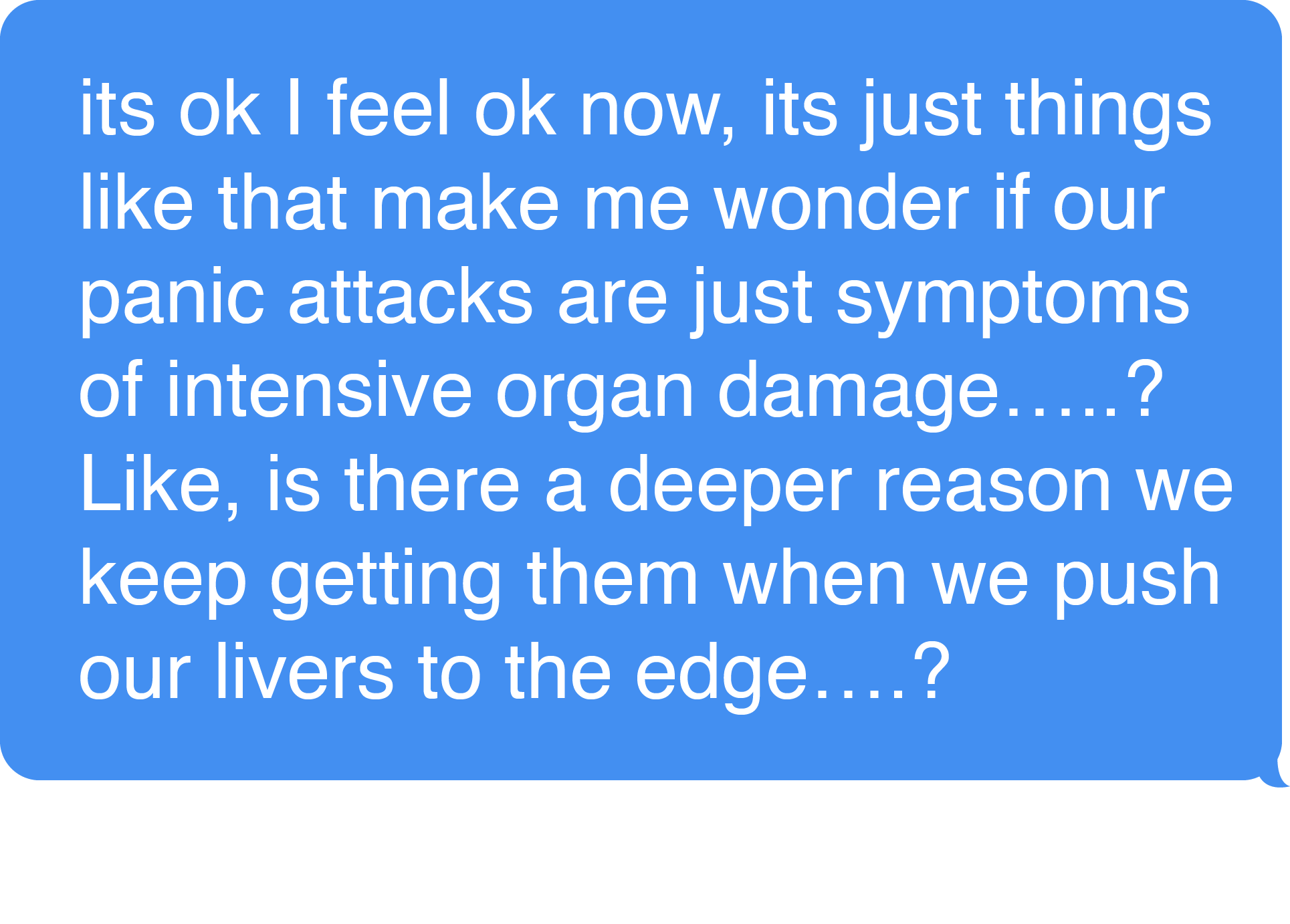Tip 12: Talk To Someone
Dont forget the importance of a friend in helping you combat panic attacks.
Sometimes talking to someone who can empathise with your situation can be one of the most helpful ways you can deal with panic attacks. Seek out friends who are able to encourage and provide you with a sense of comfort during difficult times. All it takes is a simple phone call or text.
Dont Say: Why Arent You Seeing A Therapist/on Medication
Theres nothing wrong with showing concern for a friend, but be careful it doesnt come across as accusatory. Suggesting your friend should be doing something can create a sense of shame if they arent, or make them feel like theyre being judged. If they do need to see a counselor or take medication, those are decisions they need to make on their own and at their own pace.
What To Say To Someone Having A Panic Attack Over Text
Helping someone during a panic attack over the phone can be challenging. Nonetheless, it is possible.
When someone is experiencing a panic attack, and you can stay on the phone, whether or on-call or over text. You need to keep them online if they are not too responsive. Keep reassuring them or send emojis to know you are there through their storm.
- I know this is an overwhelming situation, but you are doing a good job. I am proud of you.
- You can get through this.
- Tell me what I can do for you? What do you need right now?
- Stay with me, and keep listening to what I am saying.
- Focus on your breathing. Stay in the present. Breathe with me.
- I may not know exactly how you are feeling, but well get through this together.
- Tell me 5 things that you can touch in your vicinity? Name 5 colors around you right now? Tell 5 smells in the room? Is there anything that you can taste or eat nearby?
- You are a brave young man/lady; you have got this.
You may not necessarily know how to take out the person from their panic mode over the phone. However, your reassuring presence will be more helpful to the person than you may think. It is suggested to only offer constructive and doable advice; if you cant do that, its best to stay quiet and present with their experience.
Causes Of Panic Attacks
The real cause of panic attacks has not readily been identified. However, several contributing factors such as stress, genetics and a persons individual temperament may play a role in making someone more susceptible to a panic attack.
Some evidence suggests that panic attacks could be triggered by certain situations. It is best for the individual to monitor their own symptoms and behaviour to better understand which circumstances could potentially be a precursor to a panic attack.
There is some evidence to indicate that panic attacks may be caused by abnormal activations in the amygdala which is responsible for the control of emotions like fear.
Tell Them Not To Fight It

The number one thing to remember when someone is dealing with a panic attack is that fighting it doesn’t help â if they start to panic about the panic attack, it can get worse. âA big piece of anxiety is the worry and apprehension about the anxiety or panic attack, which thus induces more anxiety and can increase the risk of having a panic attack,” Fisher says. “So when it comes down to it, a person needs to learn how to accept and let go of that worry that they could have a panic attack, because it only puts them at more risk.â So instead, tell them that it’s OK, that they can give into it, and it will be over soon.
I Know You Cant Control It
Anxiety has had a lot of bad press over the years, and there is still a widely-held belief that it, and other mental illnesses, can be effectively controlled with will-power. Anybody with anxiety can accurately proclaim that this belief is false, but that does not stop people believing that mental illness is series of imaginary afflictions concocted by people hoping to gain pity from the masses. As the ones who feel this stigma, hearing our loved ones say I know you cant control it, or you are not making this up, or this is not your fault is a form of validation. It lets us know that you are taking us seriously, as well as our illness. That means a lot in a world where our illness is often dismissed.
Faqs On Panic Attacks
How do you ground someone having a panic attack?
The most effective way to ground them, or bring them back to the surrounding reality, is to help them stabilize their breathing. A lot of people will hyperventilate during a panic attack and this can have mental and physical side effects that make it hard to focus or relax. Focus on their breathing first by either doing counted breathing or using a breathing rhythm video or app.
Should you touch someone having a panic attack?
This is entirely dependent on the person. Some will find comfort in being held and rocked during their panic attacks, others may not want to be touched. It is very important that you always ask before simply reaching out or hugging someone experiencing a panic attack. The anxiety may become scared and lash out without realizing it if they cannot see you before you touch them or if they were not expecting to be touched.
How long do panic attacks last?
Everyone is different but in general the worst of a panic attack will peak within 10 minutes. Most panic attacks are no longer than 30 minutes. If you notice that your loved ones panic attacks are lasting longer, it may be time to seek professional care.
Im Just Going To Leave You Alone For A Minute
Being left alone while panicking makes my heart race even harder. The last thing I want is to be left by myself with my troubled brain. Many of my panic attacks spark from over-thinking and its helpful to have another person with me, not only for medical reasons but also its helpful to have another person around to force me to think about something other than the noise in my head.
Alternate suggestion: It sometimes helps me if the person Im with distracts me by telling me a story or sings to me. I need to get out of my own head and think about something other than my own panic.
Im Always Here If You Need To Talk
Sometimes a person with anxiety will want to talk through what is bothering them. Other times they will prefer to be by themselves for a while so they can sort out what is going on in their heads. And then there will be times when they will want to be by themselves, but will want to talk it through later. Whatever the case, many people with anxiety worry that they will be bothering or burdening their friends and families if they share their anxiety problems. Letting the anxiety sufferer in your life know that you are always there to talk, and that they will not be bothering you by doing so, is a hugely reassuring thing to hear.
Tips To Survive A Panic Attack
Panic attacks can be very terrifying for those experiencing them for the first time. Statistics from the U.S indicate that some 2.4 million adults suffer from panic attacks.
Needless to say, the ongoing COVID-19 pandemic has only contributed to increasing these numbers!
The article discusses panic attacks and 12 quick tips to managing it that could help.
Tell Yourself Youre Just Processing Information
When youre suffering from , panic attacks are so often you cant tell when youre actually having one. Youre in a constant state of fight or flight for months on end. Youre too scared to fall asleep and terrified while being awake. Eventually, when you do finally fall asleep, you wake up from nightmares that scare you awake. Sometimes they come as often as every ten minutes.
A social worker once told me that nightmares are the brains way of processing information. The best way to combat them is to say processing information every time you wake up from one. This little trick has helped desensitize nightmares over the long-term so you feel less panicked after waking up from one.
Tips For Dating Someone With Panic Disorder
editorial processCarly Snyder, MD
Carly Snyder, MD is a reproductive and perinatal psychiatrist who combines traditional psychiatry with integrative medicine-based treatments.
If you are considering dating someone with panic disorder, you may have some concerns about their health and what it means for your relationship. Even though not every person with panic disorder experiences the condition in the exact same way, certain characteristics are common among panic disorder sufferers.
For instance, most people with panic disorder will encounter feelings of fear and anxiety and may be participating in some form of treatment to manage symptoms. Here are some things to consider when dating someone with panic disorder:
Treatment Options For Patients With Anxiety

There are two primary treatments for individuals with anxiety:
- Cognitive behavioral therapy , which involves learning how to lower anxiety and face distressing situations.
- Medication management with antidepressants, which works well on its own but even better when coupled with CBT.
During therapy, continue to show your support by:
- Asking your loved one what you can do to help them.
- Asking if you can attend a therapy session to learn some skills to better support them.
- Making time for your own life and interests to sustain your energy.
- Encouraging your loved one to try another therapist if the first one isnt a good fit.
Tip 4: Chant A Mantra Or Practice Meditation
Similar to the deep breathing exercise in #Tip 1, chanting a mantra or practising meditation are simple tricks to help relax your mind and refocus your attention.
The practice of sacred utterances such as Om or focusing on ones breath during a meditation exercise are great exercises that can help relieve panic attacks
Have A Plan Of Action
If you know that it’s a regular occurrence, talk to your partner about what will most help â and not help them â during an attack so you can be prepared. “If you or your partner suffer from panic attacks the best thing you can do is make a plan of action,”relationship therapist Aimee Hartstein, LCSW tells Bustle. “If it begins to happen, your partner should know that you’ll spring into action with whatever their preferred soothing technique is.”
Instead Say: Im Always Here For You
You dont have to understand what your friend is going through to be there for them. Showing you care will help if your friend is self-conscious about their anxiety or has a hard time opening up about it. Listen without judgment to what they have to say and what their experiences are like. Being there for someone even when you cant relate is a powerful way of showing support.
The First Panic Attack
I was standing in the canteen at work, talking to my team. I was getting more and more worried as my boss listed all the tasks we needed to complete, and was panicking about how I was going to juggle everything and get it all done. Then I started thinking about everything I hadnt done at home. Id forgotten my lunch that morning – and did I accidentally leave the iron on?
Suddenly I wasnt listening to my boss anymore. My mind was swirling with thoughts, my inner critic shouting at me, reminding of everything I had to do. I couldnt cope. I felt like a rabbit in headlights, frozen in terror – and then I blacked out.
Suddenly I wasnt listening to my boss anymore.
I came round, lying on the floor of my work canteen, with my colleagues crowded around me. What had just happened? Id fainted. Someone at work called 111, and they sent a fast-response ambulance. It was the second day in a row that I had fainted at work, and they were worried about me.
Ask Them What They Need Or What You Can Do
Someone having a panic attack may have experienced this before. They may be able to tell you exactly what will help them in that moment. Keep in mind that they may not have an immediate response. They may have no response at all. In that case, perhaps theres a more useful item on this list to revert to.
Understand Their Panic May Not Make Sense To You Or Them
Panic attacks can be confusing as well as scary. People generally cant predict them and theres often no clear cause. They can happen in stressful situations but also during calm moments or even during sleep.
It might seem helpful to tell your friend theres nothing to be afraid of. But theyre probably perfectly aware theres no actual threat.
Thats part of what makes panic attacks so confusing. The reaction matches a fear response but nothings happening to cause that fear. In response, someone who gets panic attacks might begin to fear the symptoms themselves, or link them to a serious health issue.
Its typical to feel embarrassed or ashamed of such an intense reaction, Bingham explains. But having a trusted companion offer compassion can allow space for the person to return to baseline.
You can be that person even without understanding why they get panic attacks. Thats far less important than your ability to offer empathy and recognize their distress as real and significant.
Focus On Action Over Words
A soothing, familiar voice helps some people, but try to avoid repeatedly saying things like dont worry or asking them if theyre alright over and over.
Of course you mean well, but your words may not have much benefit in the moment. They can also make the situation more stressful, since your loved one may believe theyre doing something wrong by not being alright.
What Would You Like Me To Do To Help

Instead of assuming you know the right thing to say or do, ask your friend or relative, ask what you can do to help. He or she may want to help by talking about something else to help keep their mind occupied or may want you to find something to do, unrelated to the situation causing anxiety. Before pushing your ideas, ask what will best help.
What To Do When Someone Else Is Having A Panic Attack
This section will provide some tips on how to help a person having a panic attack.
First, try talking them through a few of the methods above. For instance, help them find a peaceful spot, encourage them to take slow, deep breaths, and ask them to focus on a nearby object.
If you do not know the person, introduce yourself and ask them if they need help. Ask them if they have had a panic attack before, and if so, what helps them regain control.
People can also try the following tips when someone else is having a panic attack:
- Try to remain calm. This will help them relax a little more.
- Suggest moving to a quiet spot nearby and help them find one. Sitting down in a comfortable place can be very effective, as it allows them to focus on their breathing.
- Remind the person that panic attacks always end.
- Stay positive and nonjudgmental. Avoid validating any negative statements.
- Try having a gentle, friendly conversation to distract them and help them feel safe.
- Avoid telling them to calm down or telling them that there is nothing to worry about, as this devalues their emotions.
- Stay with them. If they feel that they need to be alone, make sure they remain visible.
What You Should Say To Someone Having A Panic Attack
As someone who suffers all too frequently with panic disorder, I can tell you that sometimes, there’s just nothing to do but get through it. Friends, and family may try to help but truthfully, they can make it worse.
If you haven’t actually had the experience of a panic attack , then you may not understand what the body goes through. Lucky for me , I can tell you first hand what an anxiety attack is like.
Have you ever had a drink of water and chugged it so fast, it went down your air pipe? That feeling of having to choke and not being able to breathe? Yes, well, that’s one part of it.
Ever feel like there’s a weight on your chest and your lungs are restricted? That’s another!
How about the sweats? Yup! Rapid cycling thoughts? Thinking you’re going to die when in practicality, you’re not? Nausea? Yup, yup, and yup!
Think only crazy people have anxiety? NOPE! According to National Institute of Mental Health, about 40 MILLION people, ages 18 to 54 within the United States, suffer with an anxiety disorder. If you’re not the one dealing with anxiety, then it’s likely you know someone who does.
There ARE ways to help! Be compassionate with the person, before, during, and after their attack.
For me, drinking ice-cold water helps. I’ve talked to many people who feel the same way, an ice-cold jolt brings them out of their panic cycle and is calming. That may not work for everyone, so don’t go throwing ice at your friend’s face; just saying!
1. DON’T SAY: Just relax.
How To Help Someone Having A Panic Attack
A panic attack is a brief but intense rush of fear.
These attacks involve symptoms similar to those experienced when facing a threat, including:
- intense fear
- head and chest pain
Panic attacks differ from a typical fear response because theres no actual threat involved.
The body is saying theres danger, when in reality theres none present, explains Sadie Bingham, a clinical social worker who specializes in and provides therapy in Gig Harbor, Washington.
Panic attack arent always easy to identify, so people who have one attack often worry about having more, especially in public.
Panic attacks usually feel very uncomfortable and cause significant distress. Many people believe theyre experiencing a heart attack or other life-threatening issue.
If you know someone who experiences panic attacks, there are several things you can do to help them in the moment.
What To Say : With Scripts
Picture yourself, at work, having a normal day. Maybe youre having lunch or a casual conversation with a co-worker. As you go on about your weekend plans, you notice a look of confusion come across your co-workers face. At first you might think nothing of it but as time goes on it becomes clear your co-worker is not simply preoccupied with the reports they have to file later today. They are clearly sweating and starting to breathe heavier but theyre not saying anything or bringing attention to how theyre feeling. You might even ask if they are okay, as they clearly become more distressed. They might try to pass it off as nothing or they might excuse themselves. What would you do?
It is possible, even likely, that the coworker in this scenario has just experienced a panic attack.
As a therapist, I have worked with hundreds of people experiencing a range of difficult emotional situations. As a result, I often find myself coaching my patients as well as their friends, families, and significant others on how to cope with these extreme emotion dysregulation events. I think its important to show some helpful scripts so people can see what works and what doesnt work for people when they are in the midst of a panic attack.
Break Things Theyre Scared Of Into Steps
Whatever theyre trying to do whether its going to the cinema, or even walking down the street break the scariness down into small steps.
If they once had a panic attack in a shop and refuse to go back there, take them to the shop and just sit outside, says Julie. Creep closer each time and keep pausing to let their fight or flight system resettle.
How Do You Calm Someone With Anxiety
There are several ways how you can calm someone with anxiety, such as:
Advising them to avoid caffeine or alcohol since those substances tend to worsen anxiety symptoms.
Advise them to write down how they are feeling and the thoughts that trigger their anxiety.
Using herbal remedies such as chamomile, valerian or lavender oil.
Getting professional help if they are feeling too overwhelmed from their anxiety and it is affecting significantly their lives.
Mindful meditation can be very helpful when managing anxiety.
Exercise and healthy habits .
Drink some water or green tea.
What To Do After A Panic Attack
The immediate onset of a panic attack can be distressing and it is important to help the person regain an immediate sense of control.
This can be done by practising deep breathing exercises. Generally, the presence of a trusted friend or colleague can help the person recover better during the attack but this should be kept to a minimum of only one or two individuals.
Panic attacks can sometimes be triggered by the presence of too many people and individuals assisting the afflicted should be mindful of this.
After the panic attack has passed, allow the person room to regain their composure on their own and offer support when requested to help the person feel better.
What Are Panic Attacks

A panic attack is characterized by the rush of emotional and physical symptoms due to severe fear and anxiety, causing a state of intense arousal, which may exhibit itself as physical pain and constricting feeling in the heart.
Panic attacks can make them feel like they are dying, and the feeling of impending doom is a big symptom of a panic attack. The diagnostic criteria for panic attacks as described in DSM 5 are as follows:
A panic attack is a sudden surge of intense fear or discomfort that reaches a peak within minutes, and during this time, four of the following symptoms are exhibited:
Note: The sudden surge can happen from a state of calm or anxiousness.
- Shaking or trembling
- Paresthesias .
- Fear of losing control or feeling like they are going crazy.
- Feel like dying
- derealization or depersonalization .
Note: At least one of the panic attacks has been followed by a month of one or both the following:
- Persistent worry or concern regarding additional attacks and their impacts .
- A significant maladaptive behavioral change related to the attacks .
Any other mental disorder does not explain the disturbance ; in response to traumatic events, like post-traumatic stress disorder , or in response to separation from an attachment figure, like separation anxiety disorder).
How To Help Someone Who Is Having A Panic Attack
If you suspect someone is having a panic attack, Mental Health First Aid teaches you to follow the ALGEE action steps:
IMPORTANT NOTE: You might have seen on TV that people having panic attacks should breathe into a paper bag. This is no longer considered a best practice because the person ends up breathing in carbon dioxide, which could cause them to pass out. If someone is breathing rapidly, dont call attention to their breathing. Simply stay calm and model a steadier breathing rate.
Here are some useful resources you can share:
National Alliance on Mental Illness
And dont forget: After youve helped someone, remember to practice self-care. Its not easy to help a person experiencing a mental health issue, so its important to take time for yourself.